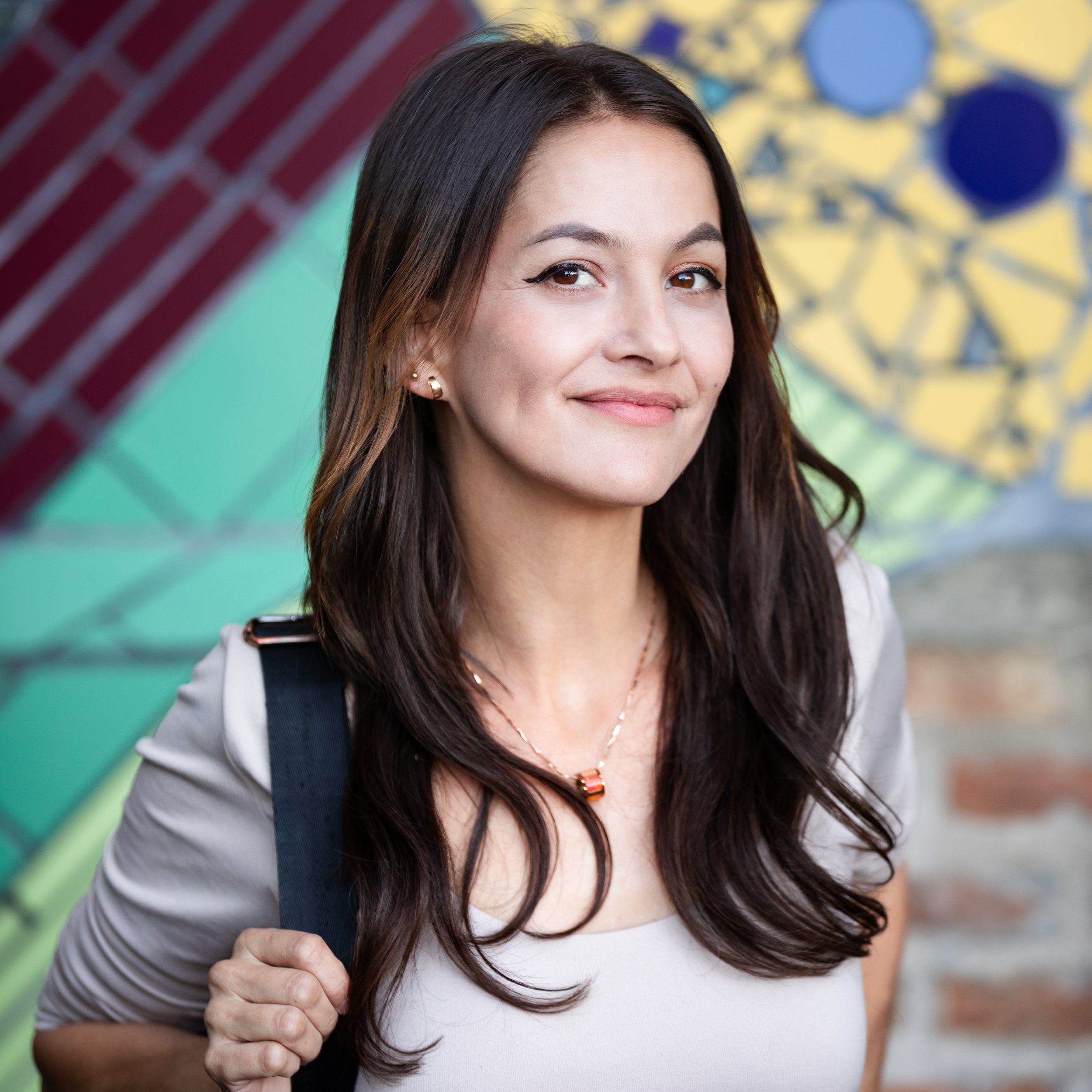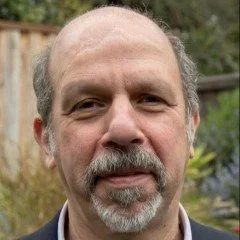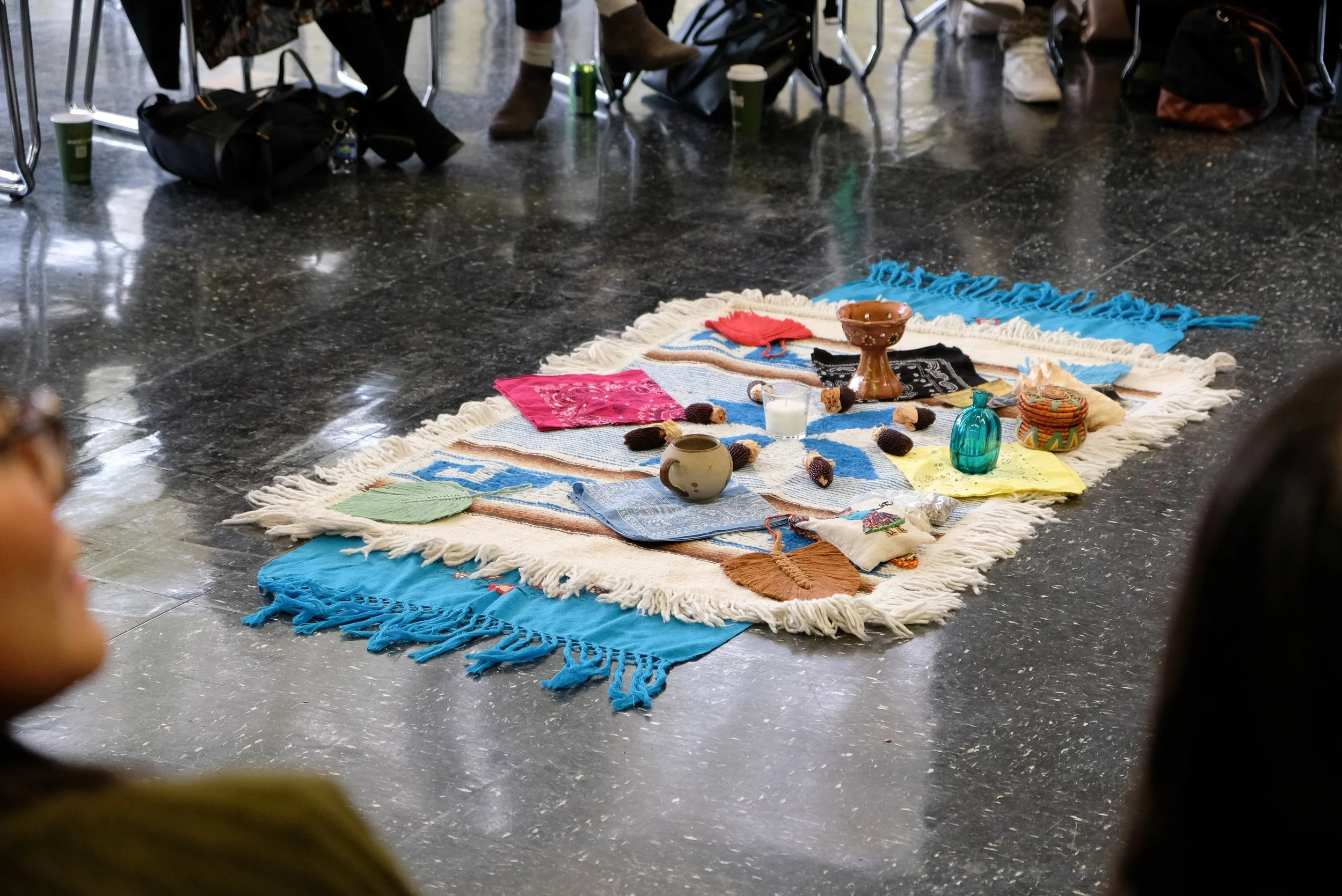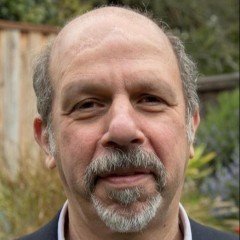Chicago Advocates and Clinicians Come Together to Support the Mental Health of Immigrants
Attendees at the Coalition for Immigrant Mental Health's 4th Annual Convening participate in a healing circle facilitated by Susana Ollin Kuikatl Tekpatzin Bañuelos and María Velazquez. Photo by Hannah Smith, courtesy of Coalition for Immigrant Mental Health
At a time of dire threat, a push to provide healing through “radical hope” and a vow to organize and protect those most vulnerable.
Editor’s Note: This is the third story from a new reporting project called “Silent Battles,” which focuses on the mental health of immigrant, refugee and asylum communities in the U.S. We have begun the project in Chicago, a city founded by a Haitian immigrant, that has the fourth-largest immigrant population in the country. The series is a collaboration between the Chicago bureau of MindSite News and palabra, a multimedia platform from the National Association of Hispanic Journalists. It is made possible with funding from the Field Foundation of Illinois.
Less than two weeks after U.S. voters decided to bring former President Donald Trump back to the White House, almost 200 people trekked to Chicago’s South Side for a convening on a critical topic: the mental health of immigrant communities in the new Trump era. They came to plan and strategize, but what many wanted, above all, was a space of healing that could help steady them for the intense work and organizing that lies ahead.
There, a healing circle was convened by Susana Ollin Kuikatl Tekpatzin Bañuelos, an Aztec/Mexica dancer of Native American heritage, and community advocate María Velazquez, the executive director of Telpochcalli Community Education Project in Chicago’s Little Village neighborhood, to guide participants into a welcoming space.
On the floor in the center of the circle, a tapestry embroidered with a blue flower and fringed edges set the tone. On top: items representing earth, air and water, four of the essential elements in Native American cultures: corn husks symbolizing the harvest of the earth, a conch shell for wind and clay mugs for water. The fire element was absent, but the energy of the participants infused the gathering with warmth.
“We know that we can’t always solve problems, avoid wars and avoid conflicts,” Ollin Kuikatl Tekpatzin Bañuelos said, but people can “create healing” in difficult times. She offered a series of prompts for a conversation between participants, and people spent a few minutes speaking softly with each other in pairs about their favorite childhood game to break the ice.
Susana Ollin Kuikatl Tekpatzin Bañuelos guides a healing circle where participants share reflections on healing and solidarity. Photo by Hannah Smith, courtesy of Coalition for Immigrant Mental Health
The second prompt was more profound – participants shared a time when they experienced a strong connection with someone outside of their race, gender, or community that “was grounded on truth, love and solidarity.”
For immigrants who are newly arrived or lack health insurance or the means to pay for services, healing circles can be a form of community-led mutual aid, “a way for communities to heal themselves,” said Maria Ferrera, co-founder of the Coalition for Immigrant Mental Health, which organized the convening. “We know that they don't have access most of the time to mental health services.”
The convening took place Nov. 15, amid mounting fears of mass deportations and family separations, and aimed to foster resilience and offer practical strategies to the clinicians, social workers, nonprofit employees and community advocates who provide mental health and other services to Chicago’s migrant communities. The event opened with a panel of city leaders and experts who emphasized the urgent need for action post-election. Beatriz Ponce de León, a longtime social services administrator who was named last year by Chicago Mayor Brandon Johnson as the city’s first-ever deputy mayor for immigrant, migrant and refugee rights, told the crowd that the city would defend and protect immigrants and newcomers.
Beatriz Ponce de León, Chicago’s deputy mayor for immigrant, migrant and refugee rights, left, prepares to join a panel at the Coalition for Immigrant Mental Health's 4th Annual Convening. Photo by Hannah Smith, courtesy of Coalition for Immigrant Mental Health
“We’re going to stand firm in our welcoming city ordinance and the protection of undocumented people,” de León said. Chicago first declared itself a sanctuary city in 1985 when Mayor Harold Washington issued an executive order barring city employees from assisting in federal immigration-enforcement efforts and pledging that city benefits would not be denied based on immigration status. Since then, five consecutive mayors have vowed to protect immigrants, including asylum seekers and those without documents, and to refrain from cooperating with federal agents.
“It’s going to be hard, and people will challenge us — even in Chicago, people will challenge us,” de León said. “So I think all of us have to be ready to stand firm in support of that ordinance.”
Mayor Johnson reaffirmed his commitment to protecting immigrants in a Nov. 12 press conference, even if it means risking federal funding. “We will not bend or break,” Johnson said. “Our values will remain strong and firm. We will face likely hurdles in our work over the next four years but we will not be stopped and we will not go back.”
Other panelists urged advocates to support immigrant communities by continuing to create welcoming spaces, removing language barriers that keep migrants from accessing information and services and, above all, working with congressional representatives and other public officials to defend the rights and needs of immigrants.
Indigenous items arranged at the center of a healing circle led by Susana Ollin Kuikatl Tekpatzin Bañuelos and María Velazquez, fostering connection and restoration among immigrant advocates. Photo by Hannah Smith, courtesy of Coalition for Immigrant Mental Health
The stakes are high, said Melissa Morgan, a clinical psychology professor at the University of Illinois Urbana-Champaign. The kinds of attacks now being aimed at immigrants can cause deep despair, anxiety, depression and other mental health challenges that can lead to long-term physical health issues and increase suicide rates, she said.
In a time of rampant misinformation and disinformation, immigrant communities in the U.S. have become frequent targets of ugly and dangerous myths and falsehoods spread on social media, such as the ones about Haitians eating pets that were amplified by Trump and his running mate, J.D. Vance.
These kinds of lies and myths do real harm to immigrant families and children, causing serious physical and mental health effects, said Dana Rusch, an associate professor of clinical psychiatry at University of Illinois Chicago and director of its Immigrant Family Mental Health Advocacy Program. Combined with the threat of stepped-up immigration enforcement, they can distort parents’ views of how welcome they are — even among groups that may not be threatened by deportation or other legal actions, she said. This undermines child development and community health, as well as fueling parents’ fears, leading to higher levels of psychological distress, she said.
Mamadou Lamine Niang, a 23-year-old immigrant from Senegal, grew up on Chicago’s South Side and works as a case worker at an immigrant advocacy organization that supports newly arrived Black immigrants with English language support, asylum assistance and other basic needs. He came to the meeting to learn how to better understand the mental health of the immigrants he sees on a daily basis.
At the conference, Niang talked about the ways that misinformation about immigrants is straining relationships between immigrants and African-Americans in Chicago. The arrival of migrants and the placement of many on the South Side intersects with the city’s historic failure to address the needs of long-term Black residents, creating fertile ground for misinformation, he said. For example, some community members believe migrants get preferential treatment such as quicker access to benefits like housing or food assistance, further dividing groups that share similar challenges.
Mamadou Lamine Niang speaks about his role as a caseworker at an immigrant advocacy organization, sharing insights into the mental health challenges faced by the newly arrived immigrants he assists. Photo by Hannah Smith, courtesy of Coalition for Immigrant Mental Health
Niang is keenly aware of the city’s long-term neglect of the South Side, a place where Black residents have long felt the weight of disinvestment pressing down on them.
“I always wanted to play soccer, for example, and when I came here, the only place that you could go play soccer is up north, like, all the way to the ‘burbs,” Niang said. To play and try out for teams, he’d take multiple buses and trains to the suburbs, where opportunities were available but costly. “The opportunities those kids have — those beautiful libraries, those beautiful soccer fields — they should provide that to the South Side.”
Support the voices of independent journalists.Until Dec. 31, your donations will be matched dollar-for-dollar. 
|
The conference also highlighted the efforts by volunteers in groups like the Mobile Migrant Health Team (MMHT) to provide support and health care to new arrivals. Established in 2023 by Sara Izquierdo, a third-year medical student at the University of Illinois Chicago, with assistance from Dr. Evelyn Figueroa, a family medicine physician at UI Health, the mobile team recruits volunteer medical students to deliver medical services to migrant families in the Chicago area. Many of the migrants were injured or sick from their journeys, endured harsh living conditions or faced health challenges after having their prescription medications confiscated at the border. The student-led team has done this work — without city support — since migrants began arriving on buses from Texas in August of 2022.
The city’s initial response to new arrivals “wasn’t perfect,” acknowledged Ponce de León, the deputy mayor. Still, she said, the city, Cook County and the state of Illinois came together to create a shelter system, with support offered by volunteers and nonprofits. “I'm really proud of what Chicago did.”
Advocacy groups and Chicagoans without documents have played a pivotal role in pushing the city to strengthen its immigrant-protection policies. The 2012 Welcoming City Ordinance, which formalized these protections, was passed during the administration of Mayor Rahm Emanuel after an extensive campaign by immigration advocates.
Members of Organized Communities Against Deportation (OCAD) participate in a 2017 march in Chicago’s Little Village showing solidarity with the immigrant community. Photo courtesy of OCAD
State laws like the TRUST Act and the Illinois Way Forward Act are also intended to create safety for immigrants. The Trust Act prohibits police from detaining individuals based solely on immigration status without a judicial warrant. The Illinois Way Forward Act, signed by Governor J.B. Pritzker in 2021, bans state and local contracts for immigration detention centers in the state.
The group that organized the convening, the Coalition for Immigrant Mental Health, has also put together resources for migrants, immigrants, asylum seekers and refugees in need of mental health services. A directory in English and Spanish list providers in Chicago and surrounding suburbs including the types of therapy offered, whether there’s a cost, and information about payment options, wait times, languages spoken at the facility, and whether a referral or ID is required for an appointment. The coalition also developed an interactive map that allows users to locate these services and legal services in Chicago and surrounding areas.
At the conference, Melissa Morgan, the UI-Urbana psychology professor, pushed back against the growing sense of despair felt by many people, including immigrants, in the aftermath of the election. She invoked the idea of radical hope, a term first introduced by philosopher Jonathan Lear to describe a form of hope that endures even when the future is uncertain, built on a sense of trust that new ways of living and meaning can emerge in times of profound loss.
“In psychology, we talk about radical hope and how we harness that is super important,” Morgan said. “Find little bits that can kind of keep us going, because if we all despair, the change isn’t going to happen.”
—
Alma Campos is an award-winning bilingual journalist in Chicago and is passionate about telling stories of immigrants in the U.S. Born in Mexico, her path led her from Azusa, California, to Chicago’s South Side. Her work dives into the immigrant experience, capturing stories across a range of topics from mental health and labor to community resilience. She contributes to The Guardian, is a senior editor at South Side Weekly, and leads reporting on the intersection of immigration and mental health for the Chicago bureau of MindSite News. Her work has also appeared in WTTW, Crain’s Chicago Business and Univision. @alma_campos
Diana Hembree is co-founding editor of MindSite News. She is an award-winning journalist and editor who worked as a senior editor for Time Inc. Health, as news editor of the Center for Investigative Reporting, and as editor in chief of a health and medical startup. She has written for Forbes.com, Columbia Journalism Review, Southern Exposure, and many other outlets and served as an associate producer of the PBS Frontline documentary "The Great American Bailout." She has a BA in English literature and an MS in sustainable food systems. @legacyreporter
Rob Waters is an award-winning health and mental health journalist and the founding editor of MindSite News. He has worked as a staff reporter or editor at Bloomberg News, Time Inc. Health and the Psychotherapy Networker and was a contributing writer to Health Affairs. His articles have also appeared in the Washington Post, the Los Angeles Times, the San Francisco Chronicle, Kaiser Health News, STAT, the Atlantic.com, Mother Jones and many other outlets. @robwaters001














